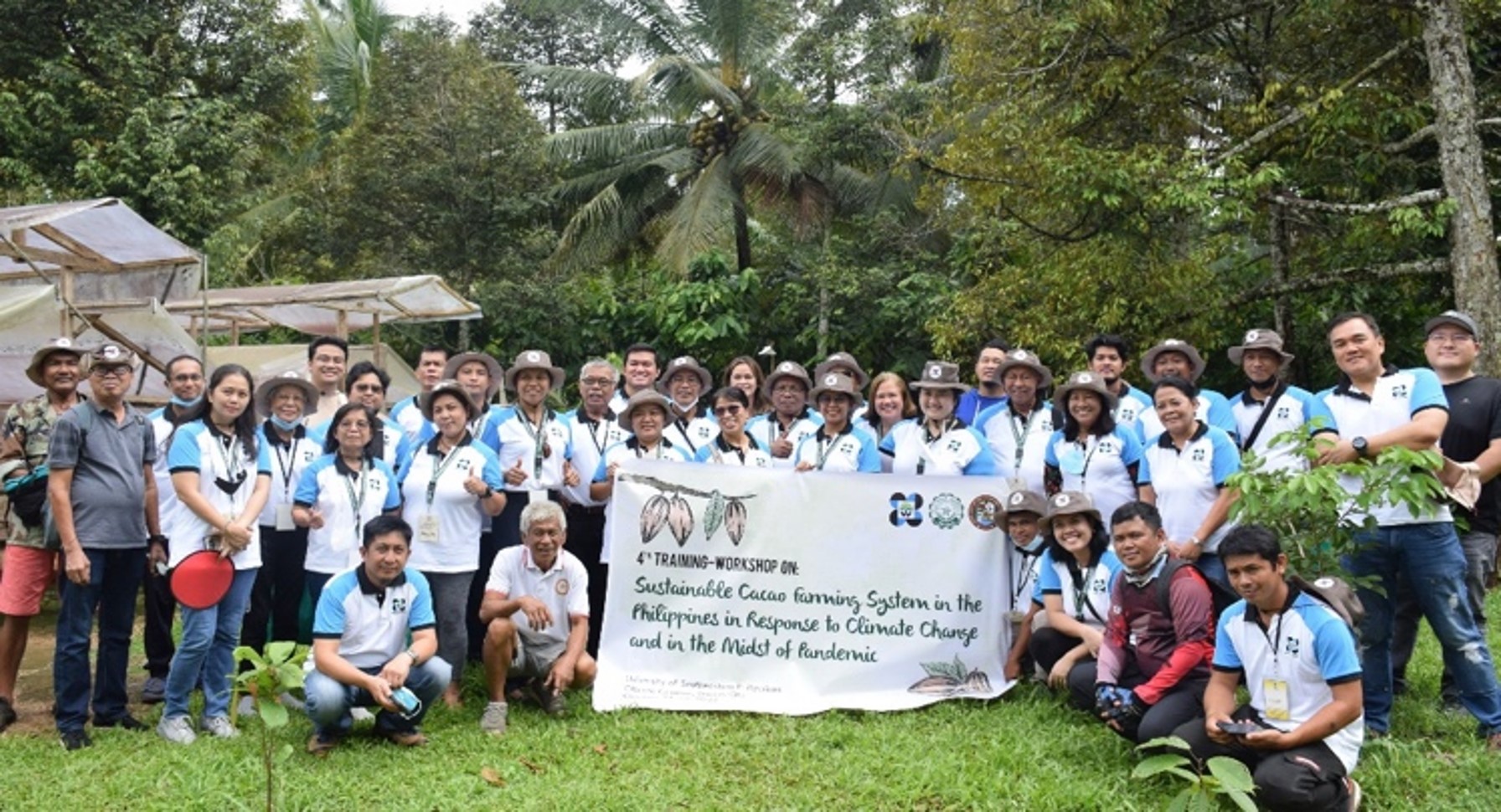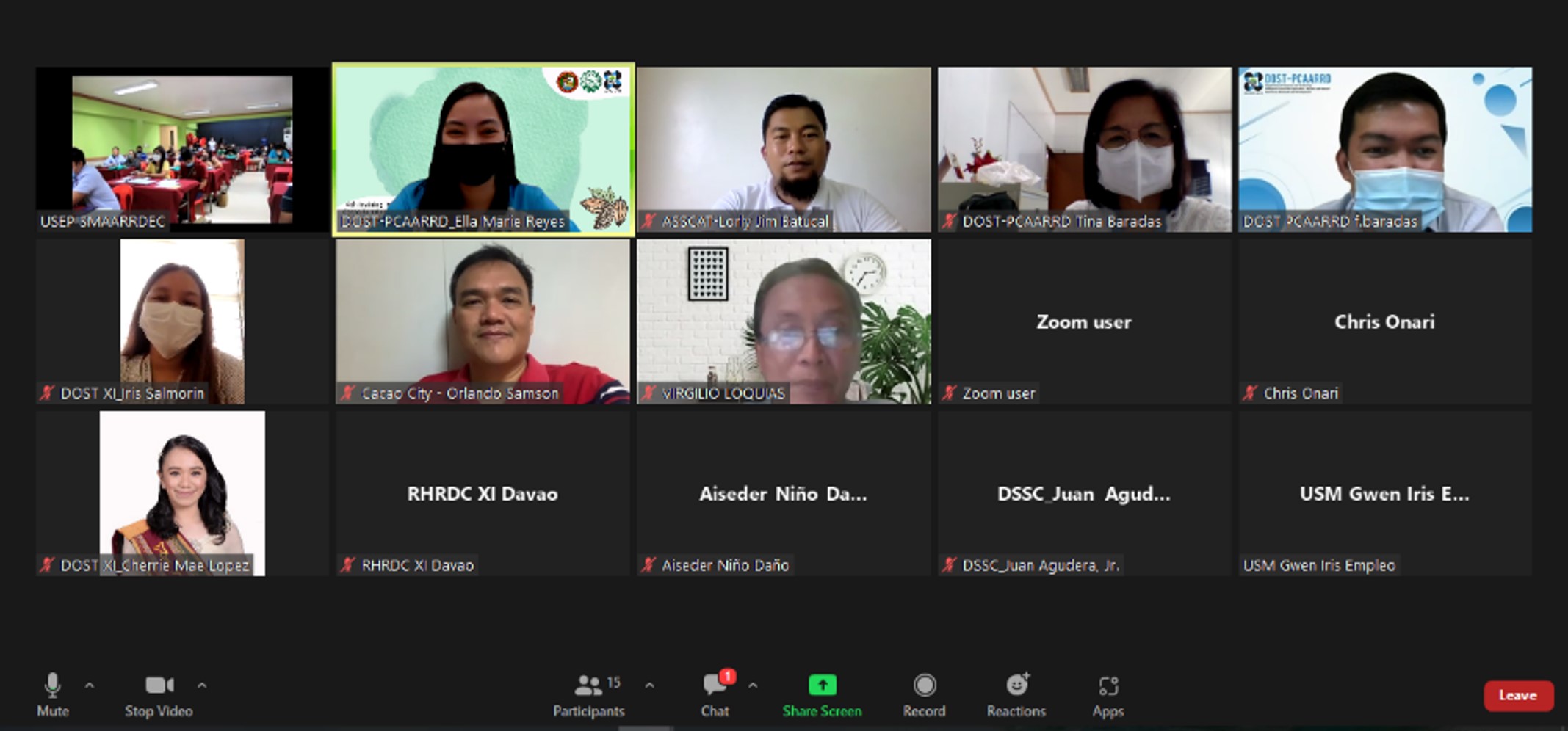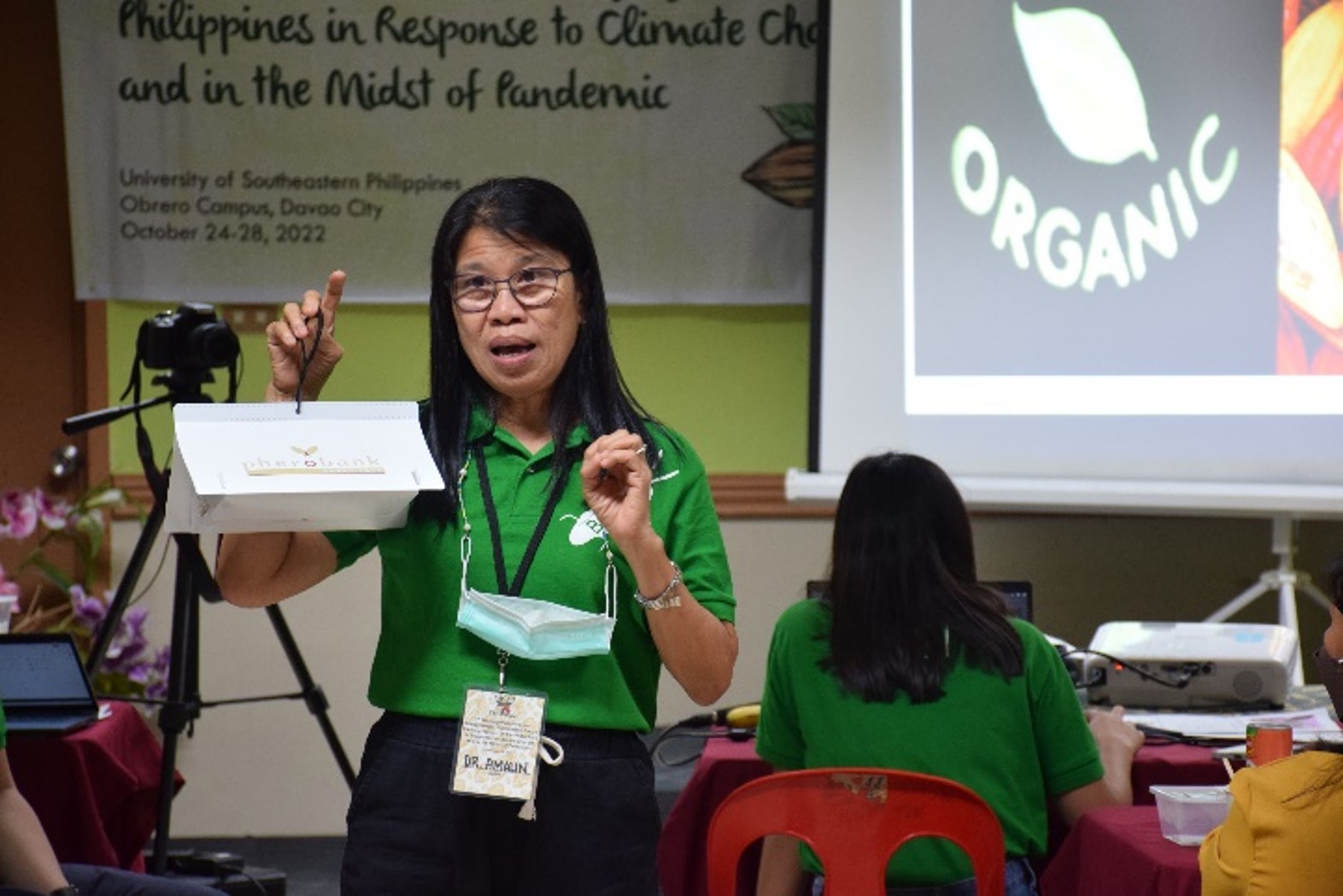
The continuous threat of climate change significantly causes huge losses in the agricultural sector, which did not spare cacao farming since cacao trees are seriously sensitive to drought. This includes a drastic change for food security because it threatens food production and its stability as well as other aspects of food system such as storage, food access, and utilization.
Moreover, the challenges brought upon by the pandemic restrict human and product movement. This severely limits market activity, resulting in work displacement, and loss of livelihood of Filipinos.
To address these issues, researchers from the De La Salle University (DLSU), Manila and the University of the Philippines Los Baños (UPLB) explored various methods to address climate variability and extreme events with the help of science and technology.
With funding and support from the Philippine Council for Agriculture, Aquatic and Natural Resources Research and Development of the Department of Science and Technology (DOST-PCAARRD), the researchers conducted a five-day training-workshop at the University of Southeastern Philippines-Tagum campus (USeP-Tagum) titled, “Strengthening Sustainable Cacao Farming System in the Philippines in Response to Climate Change and in the Midst of Pandemic.”

The training-workshop aims to equip researchers, agricultural technicians, and those involved in cacao farming with knowledge on climate change, its potential effect on cacao production, pest management using biological and ecological approaches, postharvest/processing, and marketing. The training also seeks to provide participants with various skills and techniques in establishing a sustainable cacao farming system dominated by biological and ecological approaches.
This hybrid training-workshop was attended physically by 27 participants from various farmer-cooperatives, state universities and colleges (SUCs), and private institutions, along with 12 online participants who joined via Zoom.
The course was designed based on the outputs and accomplishments of the PCAARRD-funded program implemented by DLSU, “Cacao Pest Management Program: Biologically-based Control Approaches – Phase 2.
Dr. Divina Amalin, professor and head of the DLSU Biological Control Research Unit (DLSU-BCRU), served as the overall facilitator of the training workshop. Her team, along with resource speakers from UPLB, Department of Agriculture – Philippine Center for Postharvest Development and Mechanization (DA-PHilMech) and private sectors gave lectures and hands-on demos on cacao production, processing, marketing, pest management, and rehabilitation.

Mr. Carlito Custodio, an agriculturist from a private cacao farm, expressed his gratitude to DOST-PCAARRD and DLSU for conducting the training-workshop. He appreciated the lectures on cacao pest management, especially the technology on zeolite as coating agent for cacao pods against pests.
Another participant, Ms. Lira May Sibongga, an instructor from the University of Southeastern Philippines (USeP) Tagum-Mabini Campus, says that the training-workshop has very attainable objectives. As a new researcher, she appreciated the lectures on using of biological control agents to prevent cacao pests and diseases. This can help more farmers to avoid use of chemical pesticides and shift to a more ecological method in pest management.
Ms. Joanne Sandique, co-owner of Prime Homestead Agri-Ventures, Inc. (PHAVI) Farm in Makilala, Cotabato, thanked the scientists and researchers from DLSU, UPLB, DA-PHilMech, and the private sectors for imparting their knowledge to participants. According to her, they also train cacao farmers and small holders in PHAVI on cacao production, cacao bean grading, fermentation, post-harvest, and chocolate making. With the learnings from the training, she can now easily cascade the information to more cacao farmers, which can boost the cacao industry more.
DOST-PCAARRD considers cacao as one of the priority crops under its Industry Strategic Science and Technology Programs (ISPs), managed by the Forestry and Environment Research Division.
